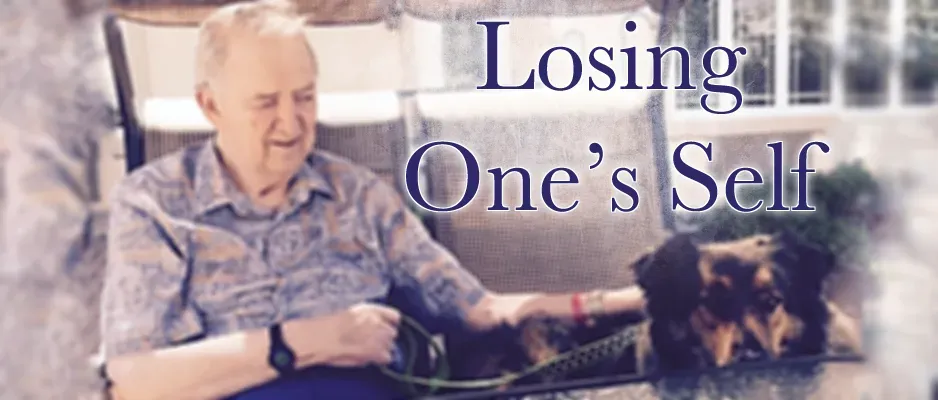Dementia is a tortuous struggle for patient and family.

I remember the first time that my dad could not find his words. He would open and close his fingers at his hip pocket like a book and tell me he could not find his sandwich, when what he was referring to was his wallet. His glasses became butterflies, and his recliner a mountain. We learned to navigate his loss of words and fill in the blanks for him, but you could see the mounting frustration in his eyes and on his face. He knew what was happening and the fear was overwhelming. This continued for months; he would go to the kitchen to make toast, but forget why he went in there. Eventually he forgot how to work the toaster and, one by one, all the other things that we do automatically without a second thought. It was painful to watch this once vital and intelligent man turn into this emotional being where the simplest of tasks were now insurmountable. He became paranoid, had extreme mood swings and emotional outbursts, sometimes crying and seemingly angry at us for reasons we couldn’t understand. But he wasn’t angry at us; he was angry at how his mind was betraying him. He was very much aware of what was happening to him and he was terrified.
I had always thought that dementia was the hardest on the individual at the beginning, then harder on the family as the disease took the person into a world that finally excluded even family. My daughter became “that girl,” and my brother became “the man.” He later forgot who I was and my mother as well. We would try to tell him who we were, but that just seemed to upset him more. Ultimately, the only living thing he really remembered was my dog Obie. Or should I say, he remembered him, but could not quite get the name right—he called him Obama. His face would light up and he would smile from ear to ear every time I brought him to visit.
My dad was diagnosed in June 2015 with Alzheimer’s and vascular dementia. As a registered nurse, I thought I knew all there was to know about dementia. After all, I could recite the signs and symptoms in my sleep; but that in no way prepared me for the toll that it takes on its victims and the families of those who live with it. Dementia does not affect everyone the same way. The symptoms are varied, and families are usually not prepared for the disease’s implications on their loved ones. My Dad became forgetful and at times despondent. He was once an avid reader, but over time he could no longer comprehend what he was reading. He used to like to watch sports on the television, but that too became too difficult for him to follow. As time passed and the disease progressed, my dad found it difficult to eat with utensils, and resorted to eating with his fingers. He was forced by necessity to use adult Depends (I find it hard to call them “diapers”; it just further supports the indignity of this disease).
The financial side of caring for someone with dementia is enormous. As the disease progresses, the need to keep your loved one safe becomes paramount. Some people become flight risks and leave the house and go wandering aimlessly with no idea how to get back home. Others become forgetful and leave stoves on. They can also become agitated and lash out at people around them. I will never forget when my mother called and told me that my dad had pushed her against the wall out of anger. The father that I knew would never have done such a thing. But that is just it: he was not my father anymore. The disease had robbed him of his identity as we watched him wither away from the person he once was.
For us, our journey was shorter than most. He died 2 years and 5 months after his diagnosis. The vascular dementia was a much faster process. He died in his sleep with the cause being unknown. He was a healthy man and his body was strong—it was his mind that had left him. As his disease progressed, he would constantly shout out that he wished he could just die. He knew what was ahead for him and he wanted no part of it. I often think that he just willed himself to death.
Arm yourself with knowledge if your loved one is suffering from any form of dementia. Awareness is a powerful tool.
About the Author
Sandra Brumfield is a registered nurse and owner of Embracing Hearts at Home. She provides in-home care for those who wish to remain in their familiar surroundings. She lives in Suwanee with her family and five rescue dogs. Obie brought such joy to her father that she continues to bring him along on client visits.
Sandra recommends the following national and local resources for those dealing with dementia or Alzheimer’s Disease.
Alzheimer’s Association, Helpline 1-800-272-3900, alz.org
GA Department of Human Services, Division of Aging Services, Dementia Resources, aging.georgia.gov
National Alzheimer’s and Dementia Resource Center, nadrc.acl.gov
Georgia Dementia Care Resources and Facilities, alzheimers.net

